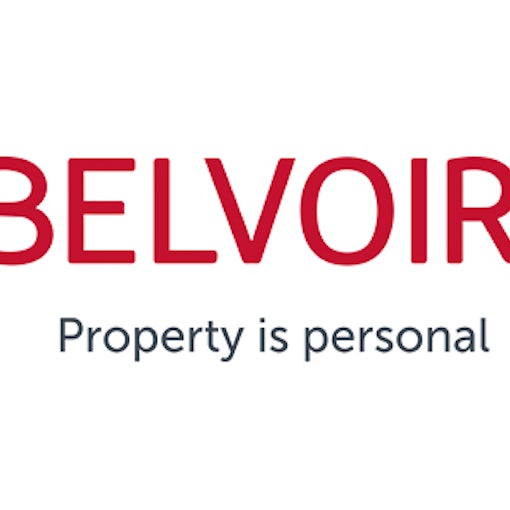Common complaint: Poor presentation
A property which is poorly presented, or not cleaned to satisfaction on arrival, can cause tenant complaints from the outset and set an unwanted tone for the tenancy.
Simple solution:
“Today’s tenants expect a rental property to be well presented – they want accommodation which is clean and tidy with appliances and amenities in good working order, such as extractor fans, showers and white goods etc,” says owner of Belvoir Evesham Melanie Carter.
“If the property is poorly presented at the viewing the tenants are unlikely to take it in the first place – but if they are willing to overlook the poor presentation because you promise to rectify issues before they move in, then make sure you do.
”Never make false promises. If you show them around a property that is cluttered and dirty but you promise it will be professionally cleaned, and then you don’t do it, you can expect tenants to be unhappy. This is likely to lead to a lack of trust which may even last for the duration of the tenancy.”
Common complaint: Communication breakdown
Too little (or sometimes even too much) communication from the landlord or agent can lead to an unhappy relationship and an unhappy tenant.
Simple solution:
“It’s important to get the communication balance right,” says owner of Belvoir Tamworth Angie Allgood. “And this can sometimes be more difficult than it at first sounds.
“You may think the tenant has understood what you’ve said but this isn’t always the case and, if you aren’t clear in your communication, assumptions can be made and misunderstandings can easily occur.
“One of the most common complaints regarding communication is tenants not being told timescales and specifics, such as times and dates that people will be coming to the house, whether that be for inspection or maintenance.
“You should give as much information as you can. Good communication cements a relationship and if you have a good relationship you can then understand each other’s expectations.
“On the reverse side of this, tenant complaints can also arise if there is too much communication and they feel that the landlord is interfering or not respecting their privacy,” continues Angie.
“Of course it is vitally important to carry out your quarterly inspections, but a landlord turning up at the property unannounced between inspections will inevitably cause complaints. You should always let them know what your intentions are before visiting and arrange by appointment.
“Landlords need to understand that tenants require, and are entitled to, privacy and this should be respected – it may be your house, but while they are living there it is their home.”
Common complaint: Damage and deterioration
Outstanding maintenance or unresolved deterioration issues can cause a myriad of tenant complaints, from the small to the serious.
Simple solution:
“Tenant complaints about unresolved maintenance issues are very common and can be caused by several things, such has contractors not completing works or a landlord not arranging for the work to be done in the first place,” says owner of Belvoir Liverpool West Derby Adam Rastall. “Leaks, damp and unacceptable levels of deterioration can all affect a tenant’s quality of living and should be resolved as soon as possible.
“Firstly establish whether the issue is wear and tear and your responsibility to rectify or whether damage has occurred because of negligence by the tenant. Next, take action!
“At Belvoir Liverpool West Derby we have a system where all job sheets are given out and are chased up on a daily basis so we can chase both the tenant and the contractor until the work is completed and the job has been invoiced.”
Common complaint: Unfair rent increases
Although most landlords will want to increase the rent from time to time, are you being fair in your expectations?
Simple solution:
“Complaints about rent increases are often about how they are handled and delivered rather than the increase itself,” says Melanie.
“Be realistic, be fair and explain your reasons for the increase, plus show that you’ve done your research to back it up.
“Assess the market in relation to the current rent being paid. If the market hasn’t moved significantly and an increase is likely to upset the tenant then we would usually advise not to do so.
“However, if you assess the market and the tenant is paying well below market value, it is useful to talk to the tenant and perhaps reach a compromise between what you could get and what the tenant is happy to pay.
“For example, if the tenant was paying £600 a month but we could see that the property could fetch £650 I would propose perhaps a modest increase of £25.
“Retaining good tenants has value in itself so don’t just say your rent is going up and that’s that – have a conversation with the tenant and try and maintain good relations throughout.
“Most tenants would be amenable to a small rent increase if they know they are still paying a little bit under market value and your reasons are explained in full.”
Common complaint: Complaints not being taken seriously!
A common complaint from tenants is that their complaints aren’t been listened to or no action is being taken in reaction to their complaint.
Simple solution:
“This is a big issue and it seems to be getting increasingly common,” says Angie. “The current generation of tenants have high expectations and sometimes little patience.
“Make them aware at the outset that you’ve listened to their complaint, have taken it seriously and will act on it accordingly. Also make sure they understand the likely timescales for you to deal with their complaint and how long things, especially maintenance, are realistically going to take.
“At Belvoir Tamworth, we take down their enquiry, explain what will happen next, plus make clear when they’re likely to hear back from us with a resolution.
“Make sure you’re honest about your intentions and don’t make promises that are impossible to keep. A tenant complaint is unlikely to go away just because it is ignored – it is, in fact, likely to escalate.
“Finally when the complaint has been dealt with, ask your tenant whether they feel their issues have been adequately addressed.”








